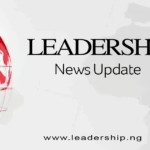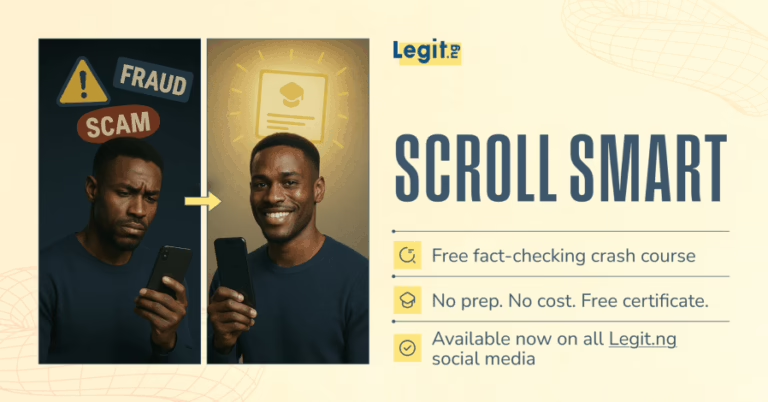Chances are, you encountered misleading information on your social media feed today. Even the most savvy internet users are not immune. False health claims, political fabrications, and scam warnings tend to spread more rapidly than verified news, often reaching younger demographics first.
This phenomenon is largely due to the sheer volume of content young people consume daily. With limited time and attention, filtering out inaccuracies becomes a challenge. Meanwhile, deceptive content is evolving-becoming more polished, persuasive, and difficult to differentiate from factual information. The problem intensifies with the echo chamber effect: repeated exposure to the same falsehoods makes them seem credible. In such an environment, even factual data can be misinterpreted.
Africa, home to the world’s youngest population, is witnessing an unprecedented surge in information consumption across both digital platforms and traditional media. While this connectivity offers exciting opportunities for young Africans, it also threatens their ability to discern reality and resist misinformation. So, what drives young people across the continent to share false content, and what factors shape their choices?
Factors Behind the Spread of Misinformation Among African Youth
A 2021 investigation by The Conversation, a coalition of nonprofit media organizations, revealed that many young Africans share misleading information out of a sense of civic responsibility or ethical concern. Whether the subject involves health, terrorism, fraud, or political unrest, they often feel compelled to warn their social circles “just in case” the information holds truth.
Humor and satire also contribute to the circulation of political misinformation. When false narratives are framed in an entertaining or playful manner, they tend to gain wider traction. This is especially true in societies where citizens can openly critique government policies but see little tangible change, fostering frustration and disillusionment. In such contexts, satirical misinformation resonates deeply and spreads rapidly.
Although young people seldom share content impulsively, the trust signals they rely on-such as verification badges, follower numbers, or prior posts-can be deceptive. These indicators may foster confidence but also create fertile ground for “half-truths,” where credible facts are mixed with conspiracy theories.
External actors also influence the misinformation landscape. Disinformation campaigns linked to foreign entities like Russia and China have targeted African audiences. One particularly effective strategy is “information flooding,” where an overwhelming volume of both true and false content confuses users, making it difficult to discern reality.
Social media platforms share part of the blame. Giants like Meta and X still face significant challenges in curbing misinformation. Their algorithms can inadvertently amplify false content, and despite initiatives such as community fact-checking, many blatantly fake accounts remain active.
READ ALSO: Chelsea held to draw at Brentford after Arsenal thrash Forest
Unfortunately, disinformation networks, complex social media policies, political manipulation tools, and conspiracy theories are entrenched and unlikely to vanish soon. So, what strategies can be employed?
Listening to Young Africans
To gain insight into the mindset of young Africans, Nigerian media outlet Legit.ng analyzed content consumption trends in Nigeria.
Over the past two years, data indicates that Generation Z remains deeply interested in human-centered stories and consistently engages with business news, while enthusiasm for political content has sharply declined after a brief spike. This trend suggests that political disillusionment, especially following periods of heightened hope and activism, increases susceptibility to misinformation.
Simultaneously, curiosity about education and entertainment remains robust. This reflects a generation growing weary of politics but eager for knowledge, personal growth, and relatable narratives. Such a shift creates vulnerabilities to false information but also opens doors for compelling, educational storytelling.
One thing is clear: Africa’s Gen Z is actively engaged. Their interests and modes of expression are evolving. Young Nigerians gravitate toward content that reflects their experiences, channels their aspirations, and articulates their frustrations. They are not passive scrollers but seekers of meaning, guidance, and authenticity.
Should Young Africans Take a Stand Against Falsehoods?
While the root causes of misinformation can be debated endlessly, the pressing question remains: what practical steps can be taken? Simply put, we must embrace the realities of digital life.
Legit.ng recently launched a media literacy initiative featuring six engaging videos that address common misinformation themes in just 15 minutes. These videos are freely accessible across multiple social media platforms.
By keeping the content concise, engaging, and impactful, this approach aims to empower young people to combat misinformation effectively. For those eager to demonstrate their skills, a quiz is available to earn certification in fact-checking basics.
What additional measures can strengthen young Africans’ defenses against online falsehoods?
- Swift Response
Misinformation spreads at lightning speed; counteractions must match that pace. Delays only allow false narratives to entrench themselves. Consider the UN reports often overlooked-truth can be slow and cumbersome when racing against lies.
- Understanding Youth Interests
Young people are engaged but have shifting priorities. Tailoring interventions to align with their current interests enhances effectiveness.
- Engaging on Their Platforms
Young Africans predominantly inhabit Instagram, TikTok, Facebook, and X. Since misinformation flourishes there, so must efforts to counter it.
- Adopting Flexible Approaches
Traditional, didactic media literacy campaigns often fall flat. In resource-limited settings, subtle methods that nurture critical thinking habits work best. Instead of rigid rules, campaigns should encourage users to pause, reflect, and verify information instinctively.
Communicating in a relatable tone that respects youth culture fosters resilience against the relentless flood of misinformation.
Final Thoughts
Africa’s information ecosystem is youthful, complex, and increasingly digital. Disinformation exploits civic responsibility, humor, foreign interference, and information overload, undermining trust, democracy, and public health.
Yet, a way forward exists. By acting promptly, engaging young people on their terms, and innovating with accessible educational tools, progress is achievable. Legit.ng’s fact-checking program exemplifies how media literacy can be transformed into a dynamic, relatable experience.
Disinformation will persist, but so will the internet. The goal is not to retreat from digital spaces but to reclaim them. Through creativity, respect for youth, and shared accountability from social media platforms, Africa can build resilience against misinformation and foster a more truthful online future.






















